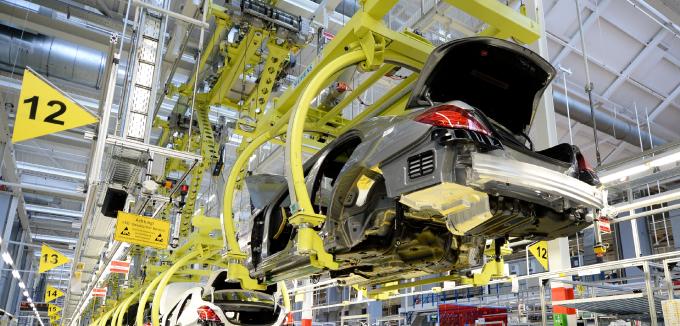DPA
Mercedes plant in Sindelfingen: Controlled ramp-up of production at Daimler from April 20
The car maker Daimler suffered significant sales losses worldwide in the first quarter due to the corona pandemic. In total, around 477,400 Mercedes and Smart cars were sold from January to March this year, which corresponds to a decline of 14.9 percent, the group said on Wednesday in Stuttgart. At the same time, the company announced that it would extend the short-time work for its employees until the end of the month.
Worldwide Carmaker hard hit by the restrictions resulting from the corona pandemic. Many corporations suspended their production and registered short-time work, Daimler also sent a large part of its employees in short-time work.
The short-time work that has existed since April 6 for the majority of production in the passenger car, van and commercial vehicle plants as well as administrative areas will continue until April 30, 2020, said Daimler. Necessary basic functions as well as future topics and strategic projects are still excluded from short-time work.
“Start-up of production” in some plants from April 20
In some selected plants, however, a “coordinated ramp-up of production” is gradually being implemented, according to the group. As of April 20, this will initially affect the car powertrain plants in Germany, followed by the Mercedes-Benz car plants in Sindelfingen and Bremen and the van plants.
During the staggered start-up, these plants would initially produce in one-shift operation. The truck and bus plants would also gradually resume production from April 20.
To protect the employees, the company took precautions to protect against infection and agreed a “comprehensive package of measures” with the works council. This included hygiene and cleaning standards, as well as regulations on behavior at the workplace.
Against the background of the corona pandemic, the company decided in mid-March to stop most of its production and work in selected administrative areas in Europe for an initial two weeks. This was followed by two weeks of short-time work.
Elsewhere, the Stuttgart-based carmaker sees signs of recovery. “In China and South Korea, our dealerships have opened completely and we see a significant increase in demand there. That gives us confidence,” said Mercedes-Benz sales manager Britta Seeger.

